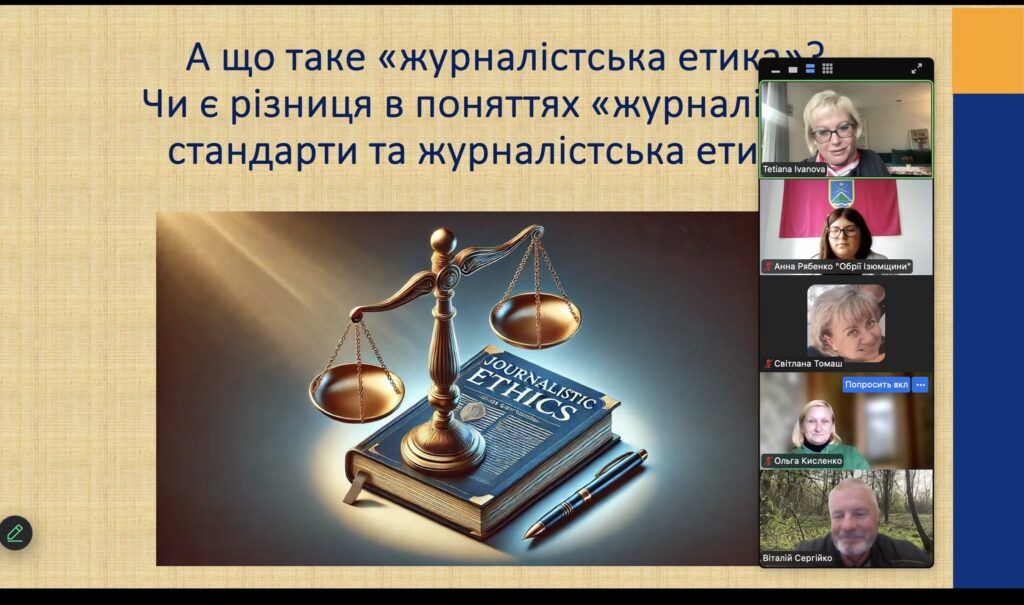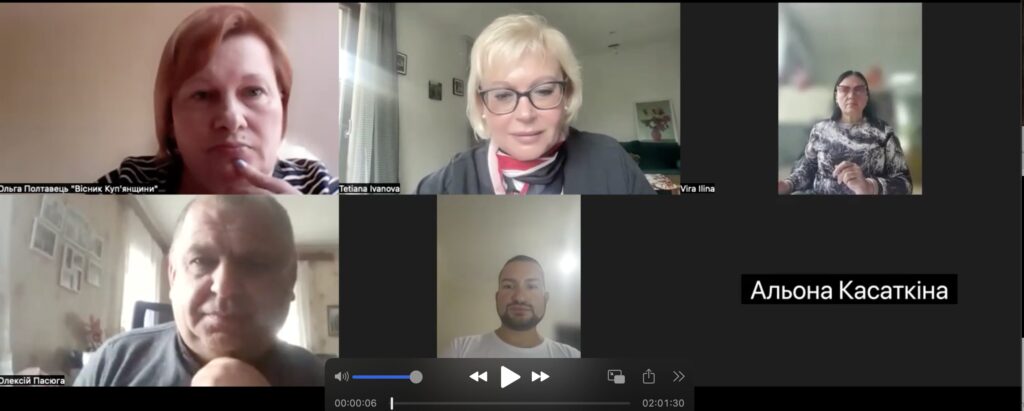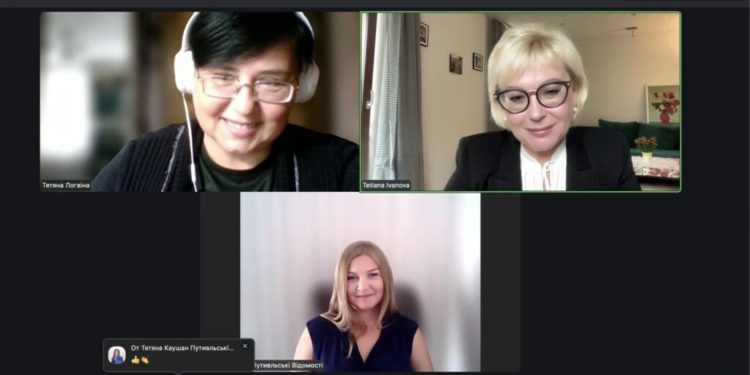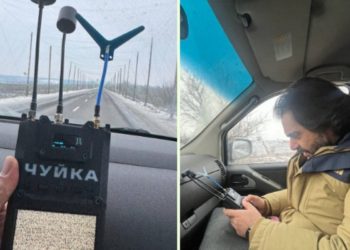In the work of a journalist, there are situations where ethics and professional standards may not align perfectly. And sometimes even enter into a deep internal conflict.
This was drawn to the attention of the participants in the National Union of Journalists of Ukraine (NUJU) project called Strengthening the Resilience of Frontline Media as a Tool for Combating Disinformation by business coach / professor / head of the Department of Social Communications of Mariupol State University, Tetiana Ivanova, during the third mentoring session.
In a real-life scenario, participants considered instances where, while fulfilling their professional duties and adhering to standards, journalists went against their conscience, which they later deeply regretted. To fulfill professional duty or human duty? Why is the truth not equal to the whole truth during war? How do journalistic standards change in wartime? These and other issues were discussed by the participants in the online event, which traditionally included interactive tasks and real-life examples.
Balance of opinions and points of view, reliability, separation of facts from comments, accuracy, completeness, and efficiency. These are generally recognized journalistic standards. However, during wartime, they are supplemented and take on new meanings.
“The standard of efficiency is inferior to the standard of reliability. And in wartime, efficiency is often sacrificed for timeliness. This definition was given by our famous colleague Andriy Kulikov. He is convinced: information should be given when it will be most useful to readers, and not as soon as possible,” commented Tetiana Ivanova.
The rule of balance, according to which a journalist must publicize the position of all sides, is also subject to interpretation. And journalistic ethics – the moral principles and norms of behavior of a journalist – begins to play an extremely important role.
“It’s more about responsibility and honesty before society and the heroes of the materials. Not to cause harm, respect privacy, and avoid discrimination are all ethical norms,” noted Tetiana Ivanova. “There are moments when human and professional ethics may not be the same. And human and professional ethics and professional standards – to enter into a deep internal conflict and even a certain personal drama.”
Discussing compliance with ethical norms, the participants in the mentoring session noted that their violation during war can sometimes have extremely negative consequences.
“Safety is the main thing in our journalistic work. For example, when I write about people from temporarily occupied territories, I check myself to see if I have let anyone down. Because their lives may depend on it,” commented Liubov Rudia, the editor of the newspaper Silski Novyny from the Kherson Region.

So, what principles should journalists adhere to during war?
- Principle 1. Priority of security and national interests of Ukraine. “Do not harm your army, your military, and citizens, and your state.”
“Before the war, we said that a journalist should not engage in self-censorship. Today, the principle of journalistic dedication and self-censorship is working in our country,” noted Tetiana Ivanova.
- Principle 2. Challenges in ensuring a balance of opinions.
In wartime, this principle becomes controversial because the publication of statements or propaganda by the enemy can play into its information campaign against Ukraine, thereby strengthening disinformation and propaganda.
A balance of opinions in wartime does not automatically mean providing a platform to the enemy. Its presence in the media requires context, analysis, and a critical approach. If the floor is given, it must be presented critically, with expert comments or fact-checking.
- Rule 3. Changes in the coverage of emotionally sensitive topics.
Journalists should be careful in covering emotionally charged materials, as excessive emotionality can affect the perception of information by Ukrainians who live in a state of constant stress and frustration.

How to cover emotionally sensitive topics
Using examples of materials in the media, the participants in the mentoring session identified common mistakes colleagues make when covering emotionally sensitive topics, such as death, burials, and shelling. These include, in particular, publishing photos of bodies or close-ups of the deceased without the consent of the family, showing injuries, covering funerals or moments of grief without warning, and disclosing personal data.
Tetiana Ivanova proposed for consideration cases when the relatives of the deceased learned about their death from the news or when photos of their relatives were “walking” on social networks. Therefore, the practical harm from publications without consent is obvious.
Tips for journalists (recommendations of the Commission on Journalistic Ethics and NUJU):
- Be sure to get permission to publish photos of the deceased or funerals;
- Avoid close-ups of bodies, wounds, blood – publish general shots;
- Blur faces or children’s data, personal information identifiers;
- Respect the dignity of the deceased and their loved ones;
- Avoid excessive dramatization in headlines;
- Find a balance between the right to the truth about crimes and the right to preserve the privacy of relatives.
Additionally, during the mentoring session, the participants discussed the issue of using terms correctly and their relevance to the context.
We found out what the difference is between a “military journalist” and a “war journalist”, whether it is worth calling russian troops “invaders” and “terrorists”, which territories of Ukraine are temporarily occupied and which are temporarily captured, and other issues.
Journalists came to the conclusion that during war, standards can change and give way to ethical principles, among which security is a priority.
A demonstration of professionalism is the ability to strike a balance between speed and reliability, upholding the right of the world to know the truth, and respecting the right to privacy. The responsibility of the media is increasing, as journalism is becoming a significant part of defense.
The project is funded by the Embassy of the Republic of Lithuania in Ukraine within the framework of the Development Cooperation and Democracy Promotion Programme.

 THE NATIONAL UNION OF
JOURNALISTS OF UKRAINE
THE NATIONAL UNION OF
JOURNALISTS OF UKRAINE
















Discussion about this post